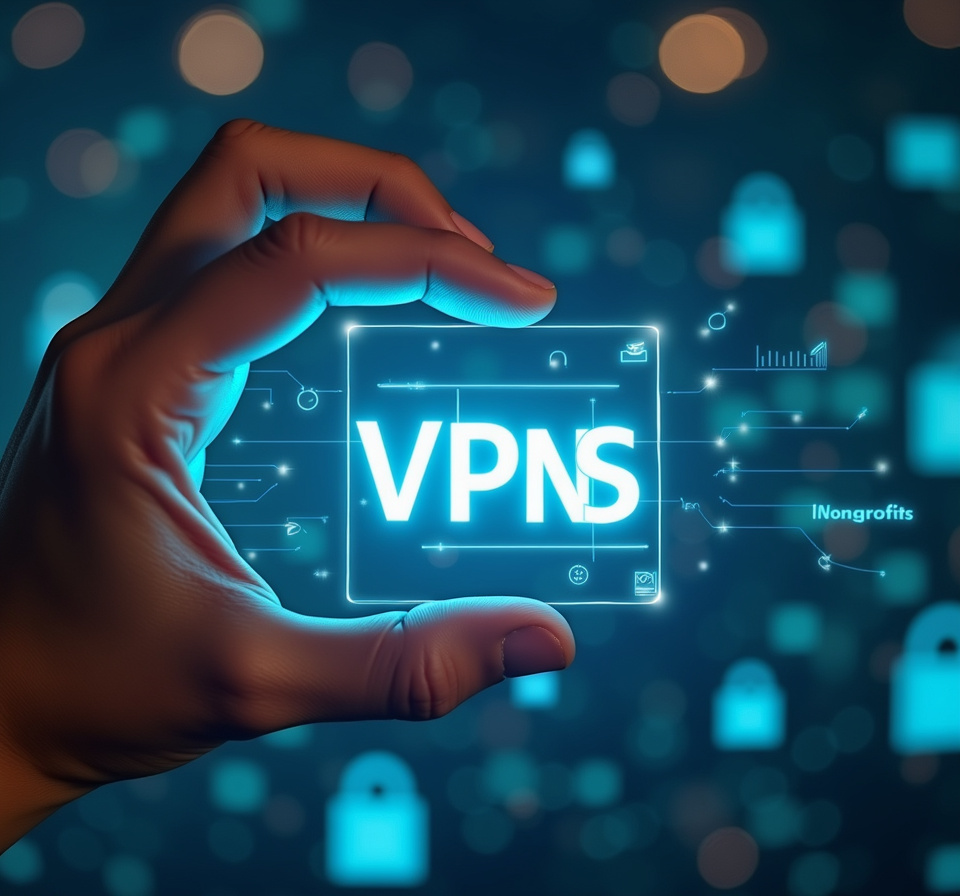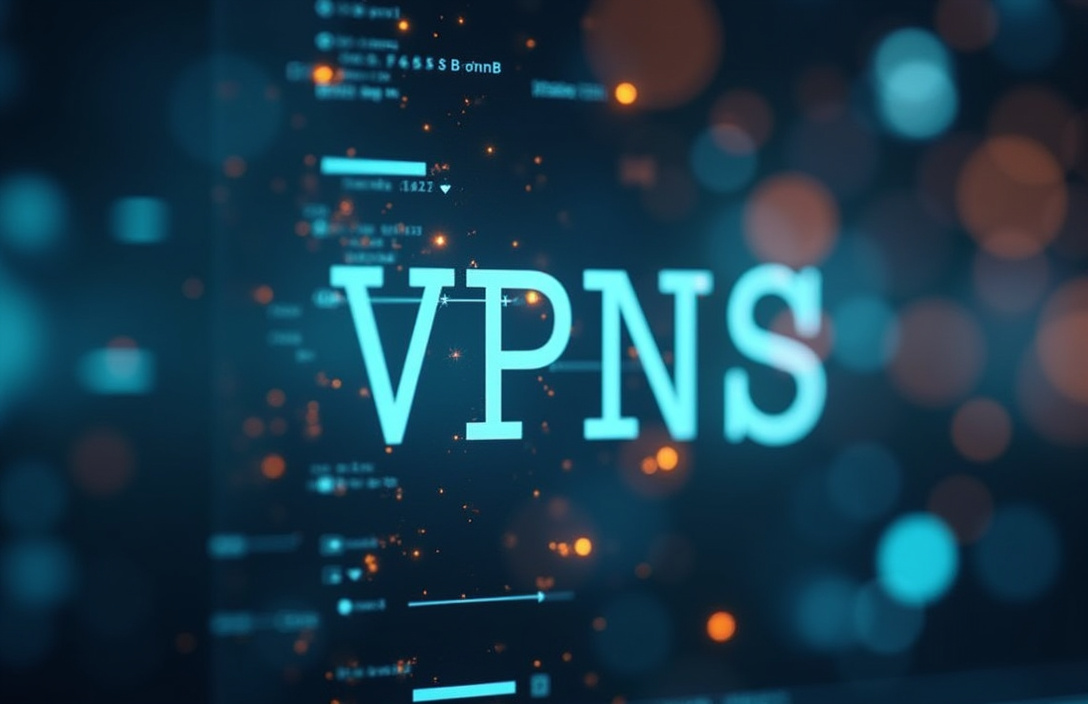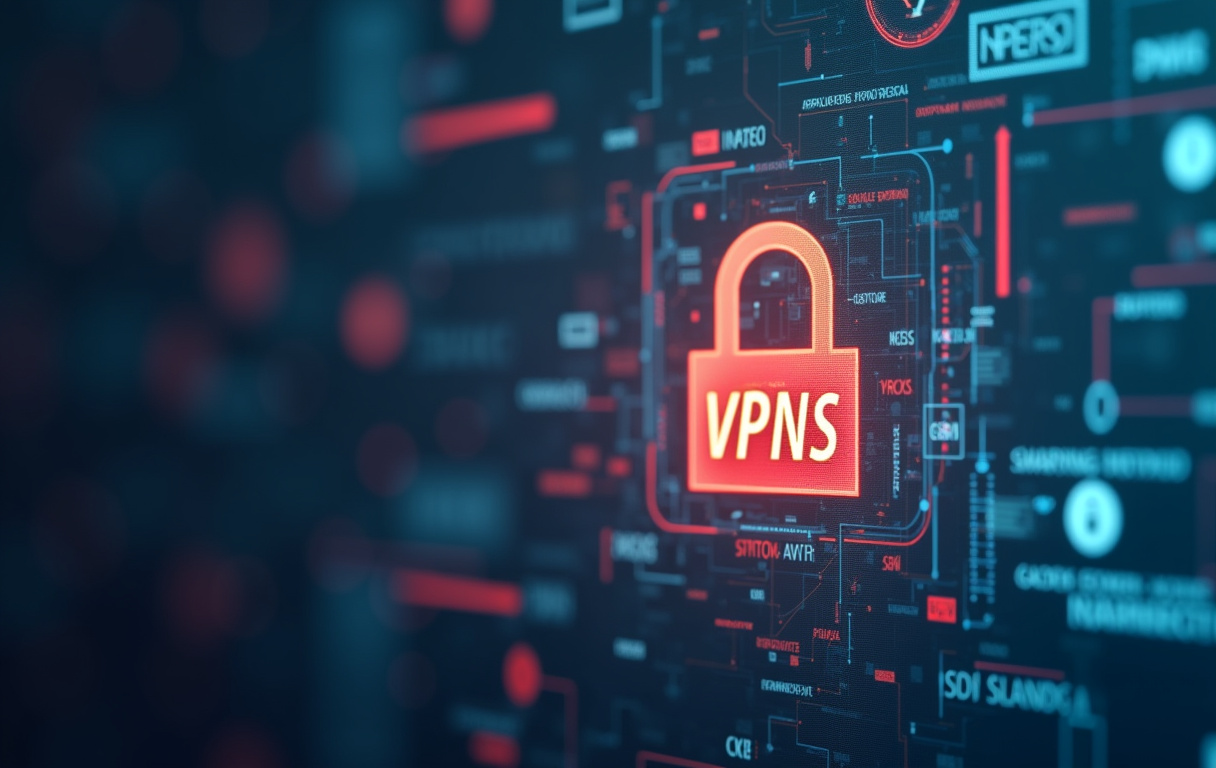VPNs for Online Fundraising: Protecting Donor Contributions

Table of Contents
Securing Non-Profit Fundraising: The Imperative of Donor Data Protection
In the digital age, online fundraising has become an indispensable tool for nonprofits and charitable organizations, enabling them to connect with a wider audience and solicit contributions from donors across geographical boundaries. This reliance on online platforms, however, introduces significant cybersecurity risks that must be addressed proactively. Protecting sensitive donor data, ensuring the integrity of financial transactions, and maintaining the trust of contributors are critical for the sustainability and success of any online fundraising campaign.
A robust and often overlooked solution for enhancing the security posture of online fundraising efforts is the implementation of a Virtual Private Network (VPN). This comprehensive guide explores the crucial role of VPNs in safeguarding donor contributions, bolstering data privacy, and fostering a secure online fundraising environment. We will investigate the security benefits of using a VPN, address common misconceptions and considerations for nonprofits, and provide practical guidance on integrating VPNs into existing fundraising workflows.
Prioritizing donor security and data privacy is not merely a technical consideration; it's a fundamental ethical imperative for organizations entrusted with public funds. By taking a proactive approach to cybersecurity, including the strategic use of VPNs, nonprofits demonstrate a commitment to responsible stewardship and strengthen the bond of trust with their valued donors. The digital fundraising landscape is constantly evolving, with new threats and vulnerabilities emerging regularly.
Therefore, nonprofits must remain vigilant and adapt their security measures to stay ahead of potential risks. Implementing a well-designed VPN strategy is a powerful step in this direction. This involves not only selecting the right VPN solution but also integrating it seamlessly into the organization's existing IT infrastructure and security protocols.
The goal is to create a layered security approach that provides comprehensive protection against a wide range of cyber threats. This holistic approach ensures that even if one security measure fails, others are in place to provide continued protection. By embracing a comprehensive security strategy that encompasses VPN technology, organizations can create a safer and more trustworthy online fundraising environment, ultimately maximizing their impact and advancing their mission.
This includes not only protecting donor data during transmission but also securing the organization's internal systems that store and process this information. A robust security posture builds confidence among donors, encouraging them to contribute generously and support the organization's cause. Implementing a VPN strategy also allows nonprofits to demonstrate their commitment to data protection regulations and industry best practices, further enhancing their credibility and reputation.
In a competitive fundraising landscape, establishing a strong security reputation can be a significant differentiator, attracting more donors who value transparency and accountability. Donors are increasingly aware of the risks associated with online transactions and are more likely to support organizations that take data security seriously. Investing in VPN technology is an investment in the long-term sustainability and success of the organization's fundraising efforts.
It's about building a resilient system that can withstand potential cyberattacks and maintain the confidentiality, integrity, and availability of critical donor data. A secure fundraising platform not only protects donor contributions but also safeguards the organization's reputation and financial stability. Therefore, it is crucial to view security as an essential investment rather than an optional expense.
Moreover, training staff on the proper use of VPNs and other security tools is essential to ensure that the technology is effectively utilized and that potential vulnerabilities are minimized. A robust security policy, coupled with employee training, can significantly reduce the risk of human error, which is often a leading cause of security breaches. A well-informed and security-conscious staff can serve as the first line of defense against cyber threats, identifying and reporting suspicious activity before it can compromise the organization's fundraising operations.
Therefore, integrating VPNs into a broader cybersecurity awareness program is highly recommended. Ultimately, the goal is to create a culture of security within the nonprofit organization, where everyone understands the importance of protecting donor contributions and data privacy. This requires a top-down commitment from leadership, as well as ongoing training and support for staff.
By viewing security as an integral part of the organization's mission, nonprofits can build a fundraising platform that inspires confidence and encourages generous support, fostering a virtuous cycle of trust and generosity. This ensures that the organization can continue to pursue its mission effectively and make a positive impact on the world.
VPNs: Your Fundraising Safeguard
The core security benefits of using a VPN in the context of online fundraising revolve around the principles of encryption, anonymity, and secure access. Encryption is the cornerstone of VPN security, transforming sensitive data into an unreadable format that protects it from unauthorized access. When a donor makes a contribution through an online fundraising platform secured by a VPN, their payment information, personal details, and other sensitive data are encrypted before being transmitted over the internet.
This ensures that even if intercepted by malicious actors, the data remains unintelligible and cannot be used for fraudulent purposes. The encryption process typically involves sophisticated algorithms and protocols that are designed to withstand even the most advanced decryption attempts. This safeguard is crucial for maintaining donor confidentiality and preventing identity theft, financial fraud, and other cybercrimes.
The encryption provided by a VPN acts as a protective shield around sensitive data, making it virtually impossible for hackers or eavesdroppers to decipher the information. This is particularly important when donors are using public Wi-Fi networks, which are notoriously insecure and vulnerable to hacking. Without encryption, data transmitted over public Wi-Fi is easily intercepted and compromised.
A VPN provides a secure and encrypted tunnel, ensuring that donor data remains safe even on unsecured networks. This gives donors peace of mind, knowing that their financial information is protected from prying eyes. Anonymity is another key benefit provided by VPNs.
By masking the user's IP address and routing their internet traffic through a secure server, a VPN effectively hides the donor's true location and identity. This can be particularly important for donors who wish to remain anonymous or who are concerned about their privacy being compromised. The anonymity provided by a VPN can also protect donors from targeted phishing attacks or other forms of online harassment.
In some cases, donors may prefer to remain anonymous for personal or political reasons, and a VPN allows them to contribute without revealing their identity. Furthermore, VPNs can facilitate secure access to fundraising platforms from anywhere in the world. This is especially important for nonprofits that operate internationally or that have donors located in different countries.
By providing a secure and encrypted connection, a VPN allows donors to access the fundraising platform without worrying about censorship, surveillance, or other online restrictions. This ensures that donors can make contributions freely and securely, regardless of their geographic location. In countries with strict internet censorship, VPNs can bypass these restrictions, allowing donors to support causes they believe in without fear of reprisal.
In addition to these core benefits, VPNs can also help to protect against Distributed Denial-of-Service (DDoS) attacks, which can disrupt online fundraising campaigns and prevent donors from making contributions. By routing traffic through a network of secure servers, a VPN can help to mitigate the impact of DDoS attacks and keep the fundraising platform online and accessible. DDoS attacks can overwhelm a server with malicious traffic, making it impossible for legitimate users to access the website or application.
A VPN can act as a buffer, filtering out malicious traffic and ensuring that the fundraising platform remains operational. Moreover, a VPN can enhance the security of the nonprofit's internal network, protecting sensitive data from insider threats and other unauthorized access. For example, a VPN can be used to secure remote access to the organization's database, preventing unauthorized employees or external parties from gaining access to donor information.
By implementing strict access controls and using multi-factor authentication, nonprofits can further strengthen the security of their internal network. This is crucial for preventing data breaches that can compromise donor information and damage the organization's reputation. Internal security measures are just as important as external security measures, as insider threats can be just as damaging.
The benefits of implementing a VPN are further amplified when combined with other security best practices, such as regular security audits, vulnerability assessments, and penetration testing. These measures help to identify and address potential security weaknesses before they can be exploited by malicious actors. Furthermore, nonprofits should regularly update their VPN software and other security tools to ensure that they are protected against the latest threats.
The cybersecurity landscape is constantly evolving, so it's crucial to stay up-to-date on the latest threats and vulnerabilities. Regular security audits and updates can help to ensure that the organization's security measures are effective and prevent potential breaches.
VPN Protocols
Despite the clear security advantages of using VPNs for online fundraising, some common misconceptions and considerations need to be addressed to ensure effective implementation and maximize the benefits. One common misconception is that VPNs are solely for hiding online activity or engaging in illegal activities. This is a harmful stereotype that overlooks the legitimate and ethical uses of VPNs, such as protecting sensitive data, ensuring privacy, and accessing content securely.
In the context of online fundraising, VPNs are primarily used to safeguard donor contributions and protect the integrity of financial transactions, not to conceal illicit activities. It's important to dispel this misconception and emphasize the positive role that VPNs can play in enhancing cybersecurity for nonprofits. When communicating with donors and stakeholders, clearly articulate the reasons for using a VPN and how it contributes to protecting their data and ensuring the security of their contributions.
Another misconception is that all VPNs are created equal. In reality, the quality and security of VPN services can vary significantly. It's crucial for nonprofits to carefully research and select a reputable VPN provider that offers strong encryption, a no-logs policy, and a proven track record of security and reliability.
Free VPN services may seem appealing, but they often come with hidden costs, such as data logging, intrusive advertising, and weaker security protocols. Investing in a premium VPN service from a trusted provider is essential for ensuring the effectiveness of the security measures. Look for VPN providers that have undergone independent security audits and have a strong commitment to protecting user privacy.
Check user reviews and ratings to get a sense of the provider's reputation and reliability. Furthermore, it's important to understand that a VPN is not a silver bullet solution for all cybersecurity threats. While it can significantly enhance security, it's not a replacement for other essential security measures, such as strong passwords, multi-factor authentication, and regular software updates.
A VPN should be viewed as one component of a comprehensive cybersecurity strategy that includes multiple layers of protection. Relying solely on a VPN without implementing other security best practices can create a false sense of security and leave the organization vulnerable to other threats. Therefore, integrate the VPN into a broader security framework that addresses all potential vulnerabilities.
When implementing a VPN, it's important to consider the potential impact on network performance. Encrypting and routing traffic through a VPN server can sometimes slow down internet speeds. To minimize this impact, choose a VPN server that is located geographically close to the user and that has sufficient bandwidth to handle the traffic load.
Experiment with different server locations and VPN protocols to find the optimal settings for performance. Furthermore, optimize the organization's network infrastructure to ensure that it can support the increased traffic demands of the VPN. This may involve upgrading network hardware or adjusting network configurations.
Another important consideration is user training. Staff members need to be trained on how to use the VPN properly and consistently. They should understand the importance of connecting to the VPN whenever accessing sensitive data or conducting financial transactions.
They should also be aware of the potential risks of using unsecured Wi-Fi networks and the importance of always connecting to the VPN in such situations. Regular training sessions and security reminders can help to reinforce these concepts and ensure that staff members are following security protocols consistently. Make sure the training is easy to understand and relevant to their daily tasks.
Finally, it's important to regularly monitor and audit the VPN usage to ensure that it is being used effectively and that there are no security breaches. Implement logging and monitoring tools to track VPN connections, traffic patterns, and potential security threats. Regularly review these logs to identify any anomalies or suspicious activity.
Conduct periodic security audits to assess the effectiveness of the VPN and identify any areas for improvement. These audits should be conducted by independent security experts to ensure objectivity and thoroughness. Regular monitoring and auditing are essential for maintaining the security and integrity of the online fundraising platform.
Enhancing Service Security Through VPN Integration
Integrating a VPN effectively into an online fundraising workflow requires a strategic and well-planned approach. The first step is to assess the organization's specific security needs and identify the potential risks and vulnerabilities that need to be addressed. This assessment should consider the types of data that are being collected, how the data is being stored and processed, and the potential threats that the organization faces.
Conduct a thorough risk assessment to identify the areas where a VPN can provide the most benefit. This assessment should involve key stakeholders from different departments, including IT, fundraising, and finance. Based on the security needs assessment, the next step is to select a VPN solution that meets the organization's requirements and budget.
Consider factors such as the level of encryption, the no-logs policy, the number of server locations, the speed and reliability of the service, and the availability of customer support. Evaluate different VPN providers based on these criteria and choose the one that offers the best combination of security, performance, and cost. Don't hesitate to request a trial period or demo to test the VPN service before making a final decision.
Compare the features and pricing of different VPN providers to find the best value for your organization. Once a VPN solution has been selected, the next step is to configure it properly. This involves setting up the VPN client on all devices that will be used to access the online fundraising platform, including computers, laptops, and mobile devices.
Ensure that the VPN client is configured to automatically connect to the VPN server whenever the device is connected to the internet. Implement strong passwords and multi-factor authentication to protect the VPN account from unauthorized access. Configure the VPN client to use the strongest encryption protocol available, such as OpenVPN or IKEv2.
Regularly update the VPN client software to ensure that it is protected against the latest security vulnerabilities. After the VPN is configured, it's important to integrate it into the organization's existing security policies and procedures. Update the security policy to reflect the use of the VPN and to provide clear guidelines on how it should be used.
Train staff members on the proper use of the VPN and the importance of following security protocols. Conduct regular security audits to assess the effectiveness of the VPN and to identify any areas for improvement. Integrate the VPN into the organization's incident response plan so that staff members know how to respond in the event of a security breach.
Make sure all employees understand the importance of using the VPN and following the security guidelines. In addition to integrating the VPN into the organization's internal workflow, it's also important to communicate its use to donors. Explain to donors how the VPN is being used to protect their data and to ensure the security of their contributions.
Provide donors with clear instructions on how to access the online fundraising platform securely using the VPN. Address any concerns or questions that donors may have about the use of the VPN. Transparency and communication are essential for building trust and confidence with donors.
Clearly explain the security measures that the organization is taking to protect their data and their contributions. Furthermore, consider using a dedicated VPN server for the online fundraising platform. This can provide an additional layer of security by isolating the fundraising platform from the rest of the organization's network.
A dedicated VPN server can also improve performance by reducing the load on the main VPN server. This is particularly important for organizations with large numbers of donors or high traffic volumes. A dedicated VPN server requires additional resources and expertise to manage, but it can be a worthwhile investment for organizations that prioritize security and performance.
This should be considered as separate instance for the fundraising platform. Finally, regularly monitor and maintain the VPN to ensure that it is functioning properly. Monitor the VPN logs for any suspicious activity.
Regularly update the VPN server software and security patches. Conduct periodic performance tests to ensure that the VPN is providing adequate speed and reliability. Regularly review the VPN configuration to ensure that it is still aligned with the organization's security needs.
Maintaining this tool should happen frequently. Regular monitoring and maintenance are essential for ensuring the long-term security and effectiveness of the VPN.
In conclusion, VPNs provide a valuable layer of security for online fundraising platforms, offering critical contribution protection and enhancing donor security and data privacy. By encrypting sensitive data, masking IP addresses, and facilitating secure access, VPNs mitigate various cybersecurity risks and foster a more trustworthy online fundraising environment. Nonprofits that prioritize donor security and data privacy can build stronger relationships with their supporters, attract more contributions, and ultimately advance their missions more effectively.
Integrating fundraising VPN solutions is an investment in trust, demonstrating a commitment to responsible data stewardship. It shows a dedication to safeguarding donor information. However, the effectiveness of VPNs hinges on proper implementation, ongoing maintenance, and a comprehensive understanding of their capabilities and limitations.
Nonprofits must carefully select reputable VPN providers, configure the VPN settings correctly, integrate the VPN into existing security policies and procedures, and train staff members on its proper use. Regular monitoring, auditing, and updating are also essential for ensuring that the VPN remains effective and secure. The digital world is constantly evolving, so this tool should be updated too.
Beyond the technical aspects, it's crucial for nonprofits to communicate transparently with donors about their use of VPNs and other security measures. By explaining how VPNs are being used to protect donor data and contributions, nonprofits can build trust and confidence with their supporters. Addressing any concerns or questions that donors may have is also essential for fostering a positive relationship.
Keep the supporters in confidence. Regular updates on security measures can help too. Looking ahead, the role of VPNs in online fundraising is likely to become even more important.
As cyber threats continue to evolve and data privacy regulations become more stringent, nonprofits will need to adopt even more sophisticated security measures to protect donor data and ensure the integrity of their fundraising operations. VPNs will likely play a central role in these efforts, providing a secure and reliable way to connect with donors and process contributions online. Prepare for future challenges.
The best solution is to plan. Moreover, emerging technologies such as blockchain and artificial intelligence may also offer new opportunities to enhance the security and transparency of online fundraising. Blockchain technology can be used to create a tamper-proof ledger of transactions, while artificial intelligence can be used to detect and prevent fraudulent activity.
By combining these technologies with VPNs, nonprofits can create a truly secure and trustworthy online fundraising environment. Explore new technologies to get the best of the options. Blockchain may change the future of finances.
In addition to technology, it's also important to foster a culture of security within the nonprofit organization. This involves educating staff members about cybersecurity risks, implementing strong security policies, and regularly reviewing and updating security procedures. A strong security culture can help to prevent human error, which is often a major source of security breaches.
Create new protocols when things get serious. Be prepared. Ultimately, the success of any online fundraising campaign depends on the trust and confidence of donors.
By prioritizing donor security and data privacy, nonprofits can build stronger relationships with their supporters and create a more sustainable fundraising model. VPNs are a valuable tool for achieving this goal, providing a secure and reliable way to connect with donors and process contributions online. Make the best to protect supporters.
Their data and donations. Therefore, the integration of VPNs into online fundraising strategies is not merely a technical implementation, but a strategic decision that reflects an organization's commitment to ethical fundraising practices and responsible data stewardship. By embracing this technology and fostering a culture of security, nonprofits can build a stronger foundation for long-term success and maximize their impact on the world.
Trust can do big things. Build the best fundraising option based on that.
Stay Updated
Get the latest VPN news, tips, and exclusive deals to your inbox.




